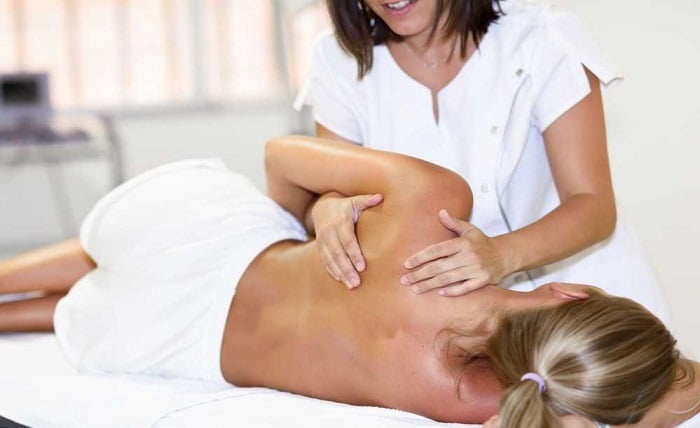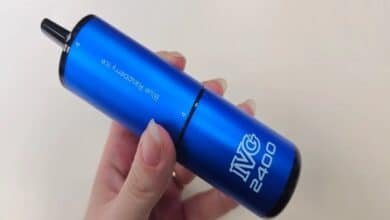For a considerable amount of time, massage treatment has been considered one of the best ways to unwind and heal. The ability to touch has been used to relieve pain, lower stress levels, and enhance wellbeing throughout many cultures and historical periods. There has never been a more pressing need for rest and mental renewal in the fast-paced world of today. With more people realizing the value of wellness and self-care, massage 부산출장마사지 therapy provides an unmatched remedy that goes above and beyond luxury. It stands for a route to profound mental and physical recovery. This in-depth examination of massage treatment focuses on the profoundly calming effects and therapeutic potential of touch.
The Relaxation and Massage Sciences
Massage therapy is a therapeutic practice with scientific backing that elicits various physiological responses in the body, making it more than merely a high-end spa treatment. Fundamentally, massage works with the body’s soft tissues, such as the muscles, tendons, and ligaments, to ease tension and encourage relaxation. Beyond the surface, the benefits of this modification extend into the neurological system and even affect the chemistry of the brain.
Stimulating the parasympathetic nerve system, also known as the “rest and digest” system, is one of the main ways that massage encourages relaxation. When this system is engaged, it lowers blood pressure, relaxes muscles, and slows the heart rate. In addition, massage increases the body’s synthesis of endorphins and serotonin, chemicals linked to happiness and well-being, while decreasing cortisol, the main stress hormone in the body.
Not only are these chemical responses theoretical, but studies have shown that regular massage therapy can also lessen stress and anxiety levels and improve mood in general. Because of this link between touch and emotional health, massage is an effective way to reduce stress and promote calm.
Stress and the Body’s Reaction to It
Understanding how stress affects the body is crucial to recognizing the therapeutic benefits of massage. Although stress is a normal reaction to difficult circumstances, prolonged stress can be harmful to one’s physical and mental well-being. Stress sets off the body’s fight-or-flight reaction, which raises cortisol levels, tenses muscles, and speeds up heart rate. Although this reaction might be helpful in brief moments, prolonged stress causes weariness, worry, tension, and even long-term health problems like digestion and hypertension by keeping the body in a hypervigilant condition.
The natural balancing provided by massage treatment counteracts the damaging effects of stress. Massage helps the body regain homeostasis by releasing tense muscles and reducing nervous system activity. Reduced stress allows the mind to unwind and the body to heal more effectively.
Different Massage Styles for Intense Calm
Different massage styles give variable degrees of relaxation, therefore not all massages are made equal. You can select the kind of massage that best meets your needs for healing and stress alleviation by being aware of the various techniques.
1. Swedish massage
Probably the most well-known and often used type of massage therapy is Swedish massage. It is distinguished by circular motions, kneading, and long, gliding strokes that are applied at different pressure levels. Enhancing circulation, releasing tension in the muscles, and encouraging relaxation are the main objectives of Swedish massage. For people who want to relax from daily stress and relieve muscle tightness, this massage technique is great. Swedish massage is a popular option for relaxation and general well-being because of the soft strokes that aid in the body’s release of physical and mental stress.
2. Massage with Deep Tissue
A more potent kind of treatment is provided by deep tissue massage for people with deep-seated knots or chronic muscle tension. In order to relieve tension and reduce discomfort, this kind of massage focuses on the deeper layers of muscle and connective tissue by delivering consistent pressure. Long-lasting relief from muscle stiffness and stress is provided by deep tissue massage, despite the fact that it may seem more severe than Swedish massage. It’s especially helpful for athletes or those whose bodies are under a lot of physical stress. In addition to promoting pain relief and mobility restoration, deep tissue massage also promotes relaxation by releasing tension.
3. Stone Therapy
By using heated stones throughout the massage, hot stone massage elevates relaxation to a new level. The therapist can work on deeper muscular levels with less force because the warmth of the stones helps to relax the muscles. Heat and conventional massage methods combine to offer an incredibly soothing experience that can relieve stress and tight muscles. To induce calmness and relaxation, the heated, smooth stones are applied to particular body locations, such the spine.
4. Massage with aromatherapy
The advantages of essential oils are combined with the healing power of touch in aromatherapy massage. Depending on the client’s request, essential oils are either administered topically or diffused during the massage. While peppermint and eucalyptus can excite and invigorate, lavender and chamomile are recognized for their relaxing qualities. Each essential oil has a unique set of medicinal advantages. For people who want to further encourage relaxation and emotional equilibrium, as well as improve the sensory experience of their massage, aromatherapy massage is perfect.
The Advantages of Massage for Mental Health
Although massage is frequently linked to physical relief, its advantages for mental health should also be considered. The effects of sadness, anxiety, and chronic stress can be profoundly detrimental to one’s mental health. Massage therapy is a natural, non-invasive alternative to manage these illnesses by encouraging relaxation and lowering stress hormones.
By reducing tension and creating a place for mental rest, massage therapy is found by many to be helpful in managing anxiety. Clients can detach from their troubles and concentrate on the here and now in this calm setting with calming music and therapeutic touch. Frequent massages can enhance an individual’s mood and help them become more resilient to stress.
Additionally, it has been discovered that massage benefits people who are depressed. After a massage, serotonin levels rise, which can have a significant impact on mood and naturally elevate it without the need for prescription. Touch itself, a basic human need that many depressed individuals lack, can also promote comfort and a sense of connection.
Using Massage to Improve Sleep
The potential of massage to enhance the quality of sleep is one of its less well-known advantages. Regular massages assist many people who suffer from insomnia or restless sleep fall asleep faster and remain asleep longer. This is because massages induce a relaxation response that contributes to the regulation of the body’s sleep-wake cycle and encourages a more peaceful mental state.
Regular massage therapy recipients report deeper, more restful sleep, according to studies. For people who suffer from chronic pain, this is especially advantageous because better sleep can facilitate the body’s natural healing processes and ease pain.
Include Massage in Your Self-Care Practices
Massage therapy has several advantages, making it a valuable part of any self-care regimen. Massage offers a holistic approach to health that takes into account both the body and the mind, whether you’re looking for treatment from physical discomfort, mental stress, or just want to improve your general well-being.
It’s vital to incorporate massage on a regular 연산동출장마사지 basis into your wellness routine in order to completely benefit from it. Even though alleviation from a single session might be felt right away, frequent massage therapy has much more significant long-term results. Whether you get a massage once a week, twice a week, or once a month, scheduling a massage can help you feel less stressed, happier, healthier, and more relaxed.
Final Thoughts
A great tool for healing, relaxation, and general well-being is massage treatment. It is a beneficial supplement to any self-care regimen because of its capacity to lessen stress, enhance mental health, and encourage relaxation. You can fully realize the healing power of touch and achieve significant bodily and mental recovery by selecting the appropriate kind of massage and incorporating it into your daily routine. A deeper state of relaxation and renewal can be achieved via the healing power of massage, regardless of whether you’re seeking relief from chronic pain, mental health issues, or just need some downtime.





